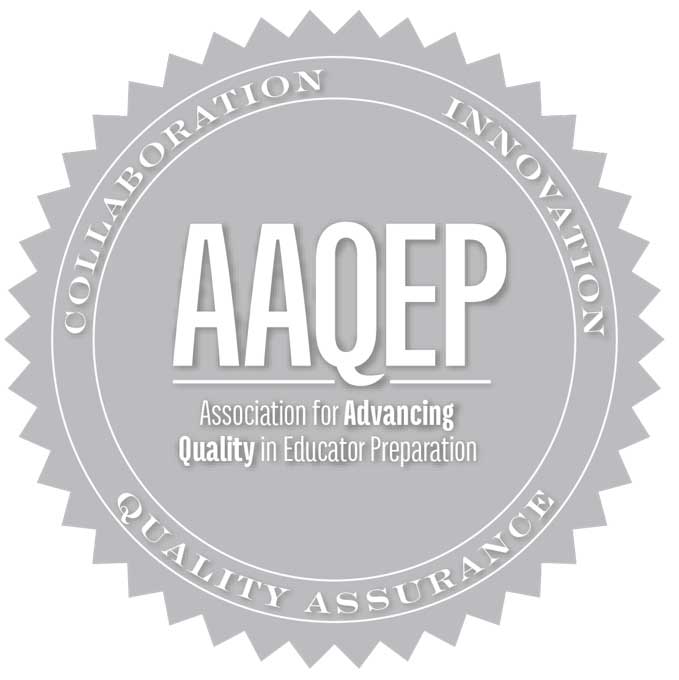Accreditation
Nazareth University is a member in good standing of the Association for Advancing Quality in Educator Preparation (AAQEP). The programs listed below have been awarded full accreditation by AAQEP through June 30, 2027. Full accreditation acknowledges that a program prepares effective educators who continue to grow as professionals and has demonstrated the commitment and capacity to maintain quality.
Undergraduate programs leading to a bachelor's degree and New York State certification:
- Inclusive Early Childhood/Childhood Education
- Inclusive Adolescence Education (Grades 7-12) in Biology, Chemistry, English, Foreign Languages (including Chinese, French, Italian, and Spanish), Mathematics, Theatre/English, and Social Studies
Graduate programs leading to a master's degree and New York State certification:
- Educational Technology Specialist
- Inclusive Education, Early Childhood (Birth-Grade 2)
- Inclusive Education, Childhood (Grades 1-6)
- Inclusive Education, Adolescence (Grade 7-12)
- Literacy Education (Birth-Grade 6 and Grades 5-12)
- Teaching English to Speakers of Other Languages (Birth-Grade 12)
Non-degree graduate programs leading to New York State certification, extension, or annotation:
- Bilingual Education
- Gifted and Talented Education
- Students with Severe or Multiple Disabilities
- Teaching English to Speakers of Other Languages (Birth-Grade 12)
Annual Reports
